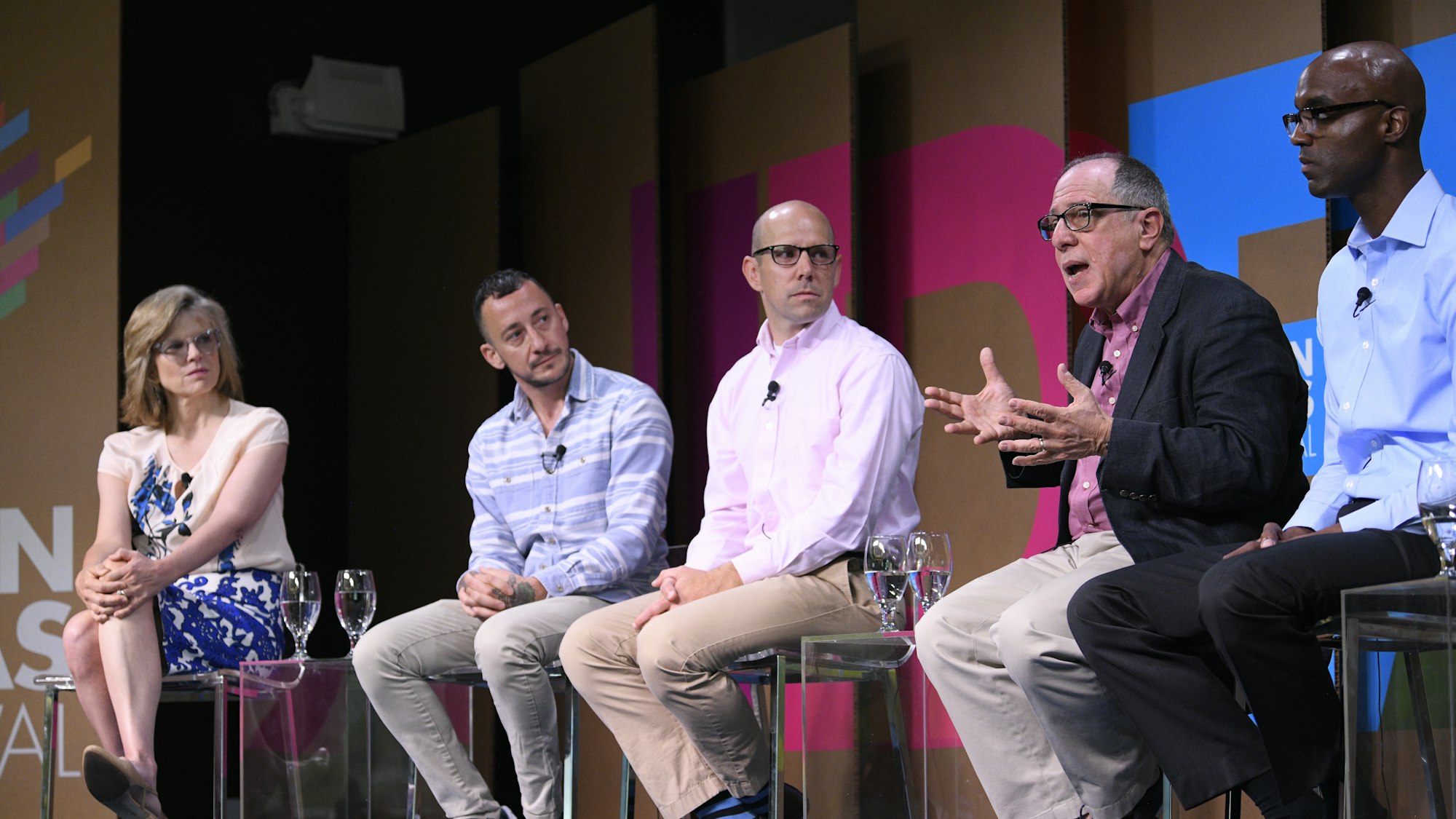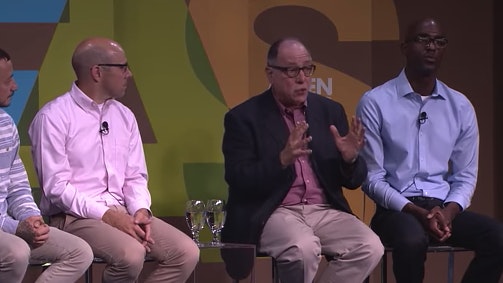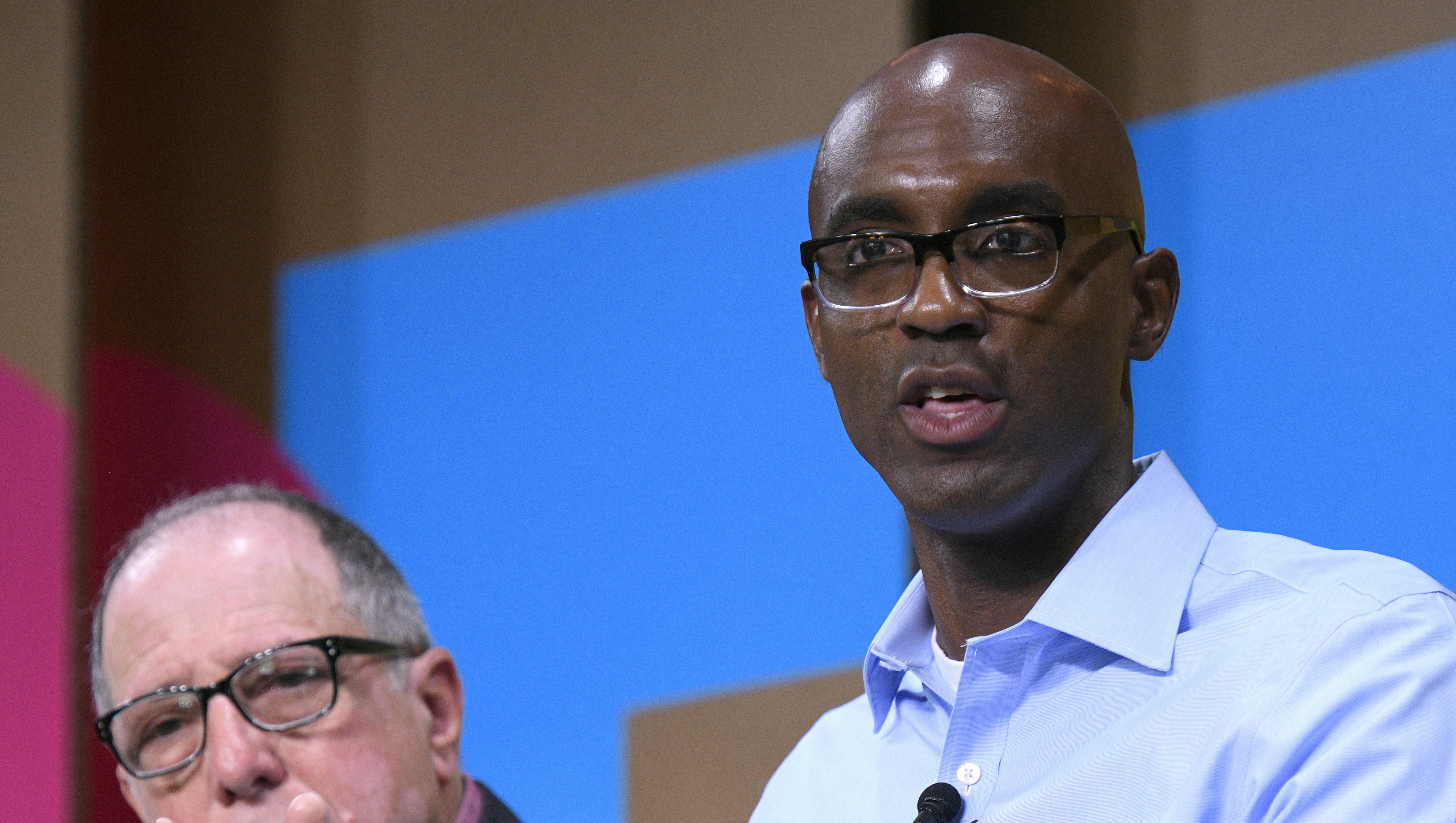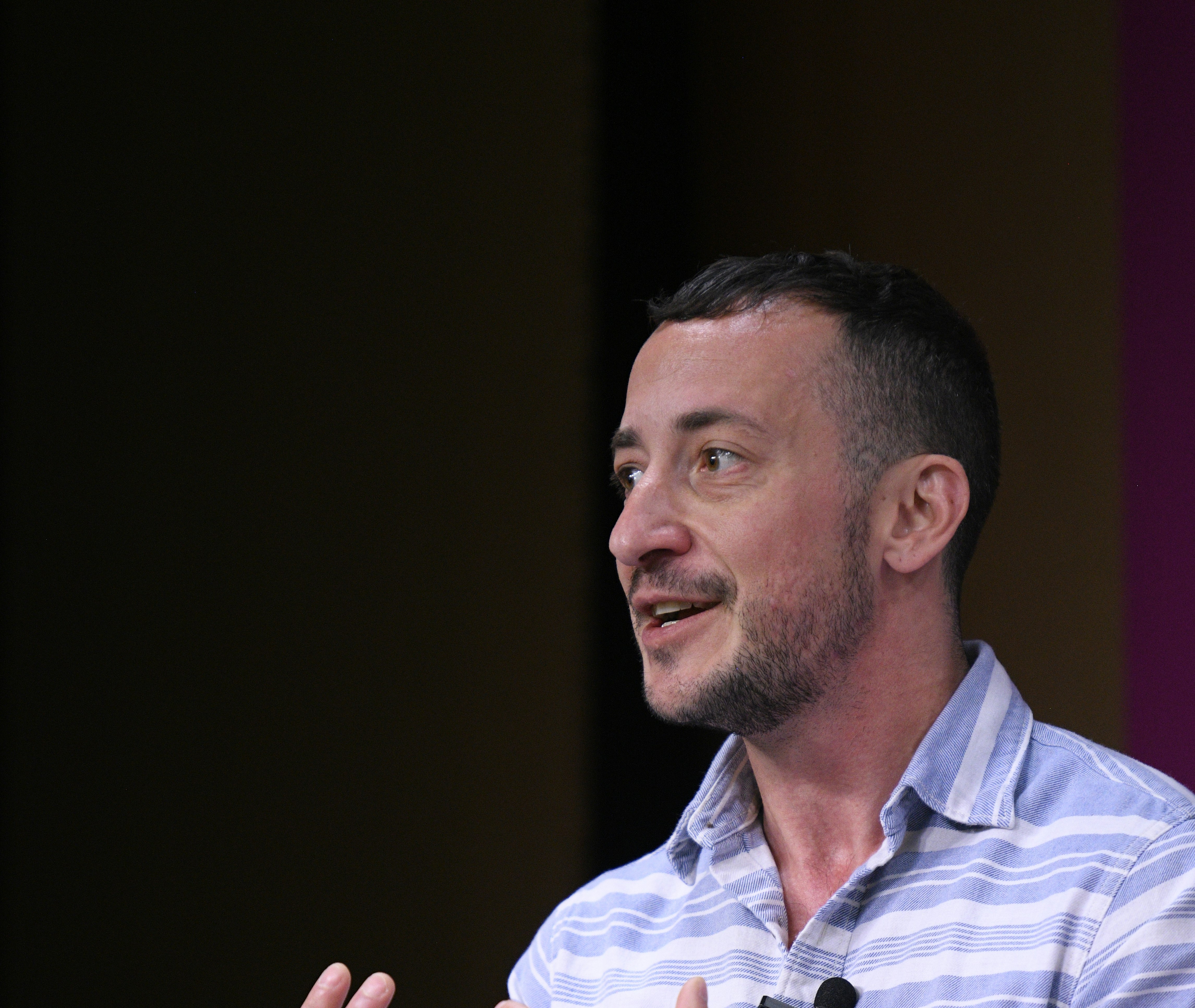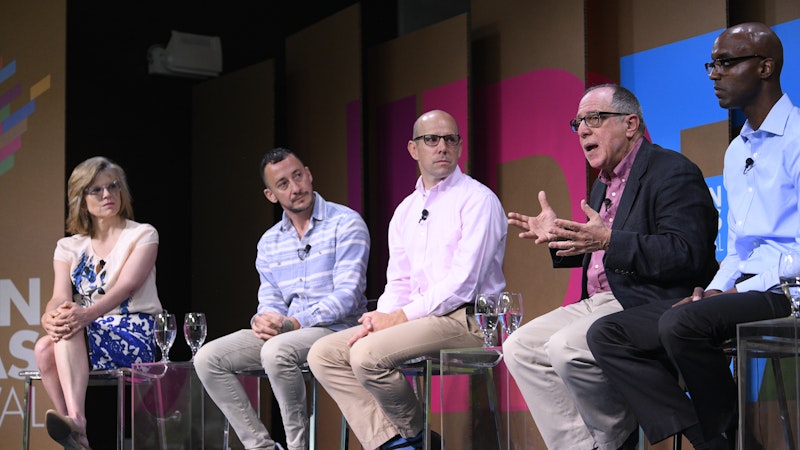
The American Man in Crisis
Setup
In aggregate, men in America are suffering. As many as ten million are missing from the workforce; jobs their fathers and grandfathers held have been automated and outsourced. Millions fewer boys are enrolling in college. Tens of thousands perished last year, victims of the opioid epidemic. One in ten black men in his thirties is incarcerated. What is the story behind all this data, and is modern masculinity part of the problem? How do we save the American man?
Speakers
-
 Michael KimmelSUNY Distinguished Professor, Stony Brook University; Author, Healing...
Michael KimmelSUNY Distinguished Professor, Stony Brook University; Author, Healing... -
 Caitlin FlanaganContributing Editor, The Atlantic; Author, Girl Land
Caitlin FlanaganContributing Editor, The Atlantic; Author, Girl Land -
 Thomas Page McBeeWriter; Author, Man Alive
Thomas Page McBeeWriter; Author, Man Alive -
 Tristan BridgesAssistant Professor, Department of Sociology, University of California...
Tristan BridgesAssistant Professor, Department of Sociology, University of California... -
 Joseph Derrick NelsonVisiting Assistant Professor of Education, Teachers College, Columbia...
Joseph Derrick NelsonVisiting Assistant Professor of Education, Teachers College, Columbia...
- 2018 Festival
- Society
It’s the end of an era for unquestioned male entitlement
Progress towards gender equality has been disjointed, contentious, and sometimes painful, but there is measurable progress being made. How have men reacted to this creeping equality? Some are panicked enough to label it a crisis. Listen to Michael Kimmel, professor of sociology and gender studies at Stony Brook University, explain the historical roots and current downfall of what he calls an “era of unquestioned male entitlement”:
When their masculinity is challenged, men tend to double down on machismo
In a discussion about whether masculinity is still alive and well in today’s society, Tristan Bridges, assistant professor in psychology at University of California Santa Barbara, draws on sociopsychological research to help answer the question. What happens if we challenge men in ways that would traditionally threaten their masculinity? Often, they react as many would expect: they double down on the behaviors that they see as masculine to prove they are who they outwardly identify as. In context of sociopsycological theory, Bridges explains, this is seen as a response to a social identity threat.
Who Knew?
How should we navigate the evolving definitions of masculinity in everyday life?
When Joseph Derrick Nelson, visiting assistant professor of education at Columbia University, got his start in education as an elementary school teacher, he was faced with the challenge of working around institutionalized conceptions of masculinity to best educate his students. Watch him explain how navigated this challenge:
What’s the harm in acting masculine?
When young men eschew emotional intimacy and resilience in favor of traditionally masculine traits, there’s a tacit understanding that they will benefit from this metamorphosis. Now that male privilege is being directly challenged, however, many men are grappling with never having developed the capacity to constructively address this changing landscape.
Learn More
Additional Information
Explore More
Society


Being a parent today is full of stress, pressure and information overload. Experts offering advice are everywhere, and for some parents, the wealth of available resources can...


The quest for work-life balance is never ending for many of us. The advice in this talk from the 2023 Aspen Ideas Festival still holds a lot of relevance, so we’re bringing it...


Living as a trans person in America comes with its share of challenges, which are sometimes even life-threatening. But some say it can also open up access to incredible freedo...

Global conflicts and health crises have put into stark relief deeply-ingrained gender roles in society. Yet the past years have also seen record-high numbers of women running...

The people in our lives shape who we are. But great relationships don’t just happen — they take care, intention, and ongoing effort. How do you know when to let go, adjust exp...


Advances in medicine and healthy living mean that more and more people will live to be 100. But just because their bodies can last doesn’t mean their bank accounts will keep u...


In the early days of cable television, there wasn’t a single network aimed at Black audiences. Sheila Johnson and her husband at the time saw an opening, and put all their hop...


Owning a professional sports team is not for the faint of heart. Results are volatile and wins and losses come with the strong emotions of a city’s fan base. But it’s a sound...


Looking around and experiencing the suffering and injustice in the world can make it difficult to believe that happiness exists. But the Judeo-Christian tradition teaches that...


This episode is from the 2022 Aspen Ideas Festival, but we’re bringing it back because it’s still as relevant as ever. Though it can sometimes feel like conflict and discord i...

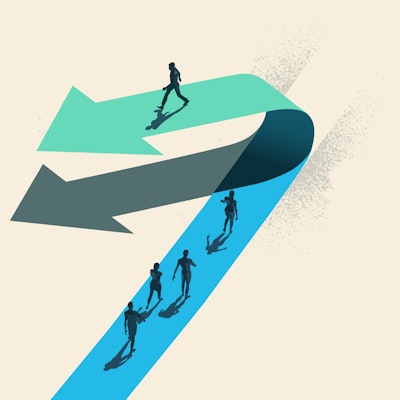
Sir Ken Robinson believed that as a society, we tragically underestimate and underutilize human ability. We create linear systems for our minds modeled on industry and manufac...


Young people in America are struggling. The causes are varied and may not be entirely clear, but the results are unfortunately unmistakable. Many of our youth feel lonely, iso...

New York Times columnist and bestselling author David Brooks is known for bringing his thoughtful reflections on politics and culture, but at this year’s Aspen Ideas Festival,...

Jump in by watching our 15 most popular talks of all time. From black holes to jazz and civil rights to psychology hacks, we've collected the talks that remain audience favori...

Finding the national and global headlines understandably bleak lately? Whether you need mental distraction or stimulation, engross yourself in compelling topics and get a gli...

Today's kids are coming of age against a backdrop of political, social, technological and economic upheaval. While these circumstances are shaping a precocious generation that...


Hope seems like a simple concept, but the feeling can be difficult to hold onto. And when times are difficult and chaos swirls around us, it’s more important than ever. How do...

Advocates, healthcare providers, legislators, researchers, and venture capitalists are bringing the unique health needs of women to light – from vigorous policy debates on iss...

Ethical dilemmas, stakeholder pressure, building trust — leading organizations requires wisdom and stamina from the top. Who wouldn’t want some advice?

What makes us happy — really? How can we raise resilient and empathetic children? What does it mean to be truly connected in our increasingly digital world? Can we re-instill...


